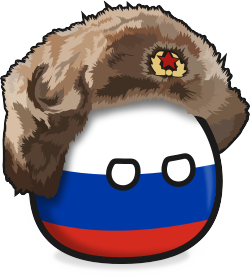
Russia Facts - Discover the Russian Nation
Want to learn more about Russia? Explore Russia facts that reveal the vastness, cultural depth, and resilience of the country of Russia. From the iconic Red Square in Moscow to the wilderness of Siberia, Russia spans a vast array of landscapes and climates.
Uncover interesting facts about Russia, a nation known for its literature, ballet, and architecture. These Russia facts truly capture the spirit of the Russian nation, a place of historical influence, cultural richness, and unparalleled natural beauty.
Overview
Russia, the largest country in the world by land area, spans Eastern Europe and Northern Asia. Known for its rich history, diverse cultural heritage, and vast natural resources, Russia plays a significant role in global politics, science, and culture. From the historic streets of Moscow to the rugged landscapes of Siberia, Russia offers a unique blend of tradition and modernity.
Key Statistics
Capital: Moscow
Population: Approximately 146 million
Area: 17,098,246 square kilometers, (biggest country in the world)
Official Language: Russian
Currency: Russian Ruble (RUB)
Main Products: Oil, natural gas, timber, precious metals, machinery, and military equipment
GDP: Approximately $1.5 trillion (2020)
Tourism: Russia attracted about 24 million international tourists in 2019.
Brief History
Russia's history begins with the East Slavic tribes and the establishment of the Kievan Rus' in the 9th century.
It then evolved into the Grand Duchy of Moscow and eventually the Tsardom of Russia, transforming into a major European empire under the Romanov.
After the Russian Revolution in 1917, it became a communist state under the Soviet Union, playing a pivotal role in 20th-century world events.
Following the dissolution of the USSR in 1991, Russia emerged as the modern Russian Federation which still stands to this day.
Landmarks and Attractions
Red Square and the Kremlin: Iconic symbols of Russia's political and historical influence in Moscow.
Hermitage Museum: One of the largest and oldest museums in the world, located in Saint Petersburg.
Lake Baikal: The deepest lake in the world, known for its clear waters and unique biodiversity.
Trans-Siberian Railway: One of the longest railway journeys globally, spanning from the bustling Moscow to the far-eastern city of Vladivostok.
Mount Elbrus: The highest peak in Europe, located in the Caucasus Mountains.
Culture and Traditions
Cuisine: Known for dishes such as borscht, pelmeni, and blini. Furthermore, Vodka is an integral part of social culture.
Arts: Rich in literature with authors like Tolstoy and Dostoevsky; renowned for ballet, classical music (Tchaikovsky, Stravinsky), and significant contributions to visual arts.
Festivals: Celebrates numerous festivals including Maslenitsa, Victory Day, and numerous arts and film festivals.
Religion: Predominantly Russian Orthodox, with significant Muslim, Buddhist, and Jewish populations, the religious landscape in the region depicts a diverse tapestry of faith traditions.
Geography
Landscapes: Features vast and varied terrain including the tundra of Siberia, the mountains of the Caucasus, and extensive forests.
Climate: Ranges from continental in most of the country to subarctic and polar in northern Siberian regions.
Natural Resources: Possesses some of the largest natural gas and oil reserves in the world, along with vast forests and minerals.
Travel Tips
Visas: Most foreigners require a visa to enter, which can be obtained through Russian diplomatic missions.
Transportation: Extensive railway network including the famous Metro systems in major cities; domestic flights cover vast distances.
Safety: Generally safe for tourists, but standard travel precautions are recommended, especially in more remote areas.
Aerial view of Moscow's financial centerThe KremlinSiberia's vast wildernessVictory Day ParadeTraditional Russian BorschtAnna Pavlova, iconic ballerinaFamous Nationals
Yuri Gagarin: The first human to journey into outer space on April 12, 1961, when he orbited the Earth aboard the Vostok 1 spacecraft.
Anna Pavlova: Iconic ballerina who brought Russian ballet to the world.
Leo Tolstoy: One of the world's greatest authors, known for "War and Peace."
Vladimir Putin: Long-serving current President and a significant figure.
Maria Sharapova: Internationally renowned tennis player.
Fun Facts
Russia spans 11 time zones and borders 14 countries, more than any other country in the world.
It is home to the world’s largest forest reserves, known as the "lungs of Europe."
The Russian State Library is the largest in Europe and second in the world after the Library of Congress.
Russians celebrate the New Year twice, once on January 1st and then again on January 14th.
The Moscow Metro is one of the deepest and most ornate metro systems in the world.
Featured Cities
Moscow: The capital city, known for its architecture, vibrant cultural scene, and as a political and economic center.
Saint Petersburg: Famous for its historical events, imperial palaces and theaters.
Novosibirsk: Siberia's largest city, considered a major cultural and scientific hub.




